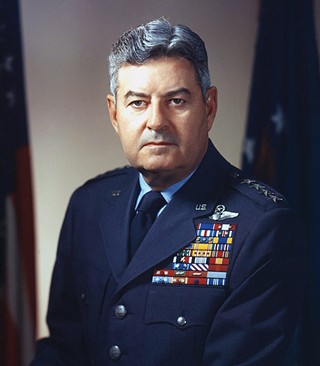As I walked through the lobby of the University of Illinois' Veterinary School, I looked at the photos of graduates lining the walls. Of course, I was drawn to the images of two people: my father and my wife.
But sandwiched between their classes of 1960 and 2001 was another image that had a nearly magnetic pull. I found myself standing before it and staring into the face of evil. It conjured images that I've tried hard to forget.
Back in 1977, on a day when we were bailing hay on our family farm, a man grabbed me in the barn, held me down, repeatedly kissed me and groped me. I was able to break away before worse things could happen.
He was 23. I was 12.
Most folks who know me now think of me as a big man. But back then I was slight, no match for a full-grown man. I've never had a more terrifying moment. Ever.
For decades, it was a family secret.
The man went on to be admitted to the prestigious veterinary school. He's even been invited back as a distinguished alum.
As I stood in front of my assailant's image, I felt disappointed. He looked ordinary, clean cut. There was no shadow across his face that screamed "molester." In fact, his face, which has appeared in my nightmares for decades, stared back at me serene and happy. It was a graduation photo, after all.
We often delude ourselves into believing evil has a malevolent face.
Maryann Tyler, a speech therapist from East Moline, spoke to me recently of her quest to discern evil. She left a murder trial disappointed.
She attended the trial of Henry Dinkins, a Davenport, Iowa, man accused of killing 10-year-old Breasia Terrell, whose body was found floating in a DeWitt, Iowa, pond in 2020. A judge has yet to render a verdict in the bench trial.
"I think he did it," Tyler said. "I kept thinking that if I was in the same room as him that I would sense evil. But when I went into the courtroom, I felt nothing. I kept thinking I could be out in the community and strike up a conversation with him and not have any idea that this could be someone dangerous."
And there is the rub.
More than 20 years ago, I went to the prison in Pontiac to interview a death row inmate.
When setting up the interview, I hadn't thought about it being Valentine's Day. The realization hit me when I walked through the prison gates and surveyed the visitor's room.
Women from across Illinois were wearing their nicest clothes, visiting their husbands and boyfriends on that day set aside for romance. There was love in that room.
Our society doesn't like to talk about this. It's far easier to vilify those a judge and jury have ruled so worthless that they shouldn't be allowed to live. Each inmate in that room had murdered more than one person.
But the most striking thing about the room was how ordinary the men were; their faces could blend in at most any Midwest diner.
I shared this observation with actor Mike Farrell, who played Capt. B.J. Hunnicutt on the old M*A*S*H series. Farrell, an opponent of the death penalty, has spent a lot of time visiting those sentenced to death.
"You know, Scott, these guys don't have horns growing out of their heads," he told me during a phone interview.
Somehow it would be more reassuring if monsters did have horns.
I recently finished reading The Bomber Mafia by Malcolm Gladwell. In it he wrote about the firebombing of Japanese residential neighborhoods by American bombers during World War II. A special jellified gasoline called napalm was developed for the task that killed between 330,000 and 900,000 noncombatants.
When I read that, I cringed. It wasn't just the thought of innocent people dying in flames that bothered me. I knew one of the men who helped invent napalm. He was a chemist in my hometown of Galesburg and on Wednesday nights when I was growing up, he and his wife dined at our church youth group table.
He'd regale youngsters telling stories about his time in the U.S. Army Chemical Corps. He liked to show the scars on his arm where he used a paint brush to self-experiment with blistering agents he developed in the lab. But his crowning achievement was being on the team that developed napalm.
I asked him if it bothered him that his invention killed people. He shrugged and said, "No." After the war, he used his chemical expertise to develop new uses for soybeans. His next crowning achievement? An ingredient in the Milky Way candy bar.
Gen. Curtis LeMay, who ordered the firebombing of Japanese cities, said, "Killing Japanese didn't bother me very much at that time... I suppose if I had lost the war, I would have been tried as a war criminal."
Instead, he was promoted to U.S. Air Force chief of staff. It's the banality of evil.
Scott Reeder, a staff writer for Illinois Times, can be reached at [email protected].























